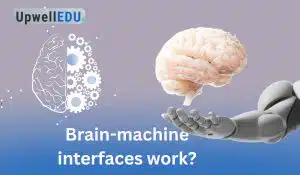Will robots take over all human jobs? This question drives worry and curiosity alike. In this post, we explore the reality behind automation, the roles most at risk, and how you can prepare for a future shared with intelligent machines. You’ll also learn why Upwelledu offers clearer, more practical guidance than any other blog.
1. Understanding Robot Automation
1.1 What Is Robot Automation?
Robot automation means using machines—often guided by software—to do tasks that people once did. These machines range from simple conveyor-belt arms in factories to advanced software “bots” that handle data entry.
1.2 Why Automation Grows
Automation grows because it can cut costs, boost speed, and work without breaks. As technology gets cheaper and smarter, more companies see robots as a way to stay competitive.
2. Which Jobs Are Most at Risk?
2.1 Routine Manual Tasks
Jobs like assembly-line work, simple packing, or basic sorting are easy to automate. Robots can repeat these moves endlessly without error.
2.2 Data Processing and Entry
Software bots can scan, sort, and enter data far faster than people. Roles in invoicing, payroll, and simple analysis face high risk.
2.3 Customer Service Basics
Chatbots now handle many first-level support queries. They can answer FAQs in seconds. Simple customer service roles may shrink.

3. Jobs That Robots Struggle With
3.1 Creative Professions
Art, design, writing fiction, and music composition still need a human touch. True creativity and emotional depth remain hard for robots.
3.2 Complex Social Interactions
Therapists, social workers, teachers, and care providers rely on empathy and deep listening. Machines can’t match real human connection.
3.3 High-Level Decision Making
Executives, strategists, and top-level managers weigh many factors and use gut instinct. Robots lack broad context and true intuition.
4. How Humans Can Adapt
4.1 Upskilling and Reskilling
Learn digital tools, coding basics, and data literacy. Online courses and micro-credentials help you stay valuable.
4.2 Emphasize Soft Skills
Creativity, leadership, empathy, and complex problem-solving will always matter. Focus on strong communication and teamwork.
4.3 Lifelong Learning Mindset
Adopt a habit of learning. New tools and trends appear fast. Stay curious and ready to pick up new skills.

5. Benefits of a Robot-Human Future
5.1 Increased Productivity
Automation can boost output and free people for more creative tasks.
5.2 Safer Work Environments
Robots handle dangerous, heavy, or repetitive jobs. This cuts injuries and health risks.
5.3 New Job Creation
History shows tech shifts create whole new fields. We may see roles in robot maintenance, AI ethics, and data curation grow.
6. Challenges We Must Face
6.1 Economic Displacement
Some workers will lose jobs. We need fair transition plans—like job counseling and income support.
6.2 Ethical and Legal Questions
Who is liable when an autonomous vehicle causes a crash? How do we protect privacy when AI scans personal data? Clear laws must follow tech.
6.3 Social Impact
Wider gaps could grow between tech-savvy and those left behind. Society must ensure everyone gains from automation.

7. Future Outlook: Balance and Coexistence
7.1 Human-Machine Teams
The future isn’t robots versus humans. It’s collaboration. Humans guide strategy; robots handle routine tasks.
7.2 Policy and Education
Governments and schools must update policies and curricula. Teach critical thinking, digital skills, and ethics from an early age.
7.3 Vision for 2050
By mid-century, we may see most manufacturing fully automated, while humans focus on design, care, and exploration. Robots will enrich, not replace, human work.
8. Why Upwelledu Is Your Best Resource
At Upwelledu, we go beyond fear and hype. We:
- Explain Complex Ideas Simply: Our posts use clear language, short sentences, and no jargon.
- Offer Actionable Advice: You’ll find step-by-step guides for learning new skills.
- Stay Ahead of Trends: We research the latest developments so you don’t have to.
- Focus on You: Content is designed for readers worldwide, with real examples and tools you can use now.
- Build Community: Join discussions, ask questions, and connect with experts on our blog.
With Upwelledu, you get not just theory but practical support to thrive in a world shared with robots.
Read More Relevant Article
- Hormone Balancing Diet Plan
- Best Diet Plan for Hormone Balance
- Gluten-Free Protein Powders
- Best Protein Powders Without Gluten
- How Wireless Power Transmission Works
- Exploring the Science of Wireless Electricity
- How a Nuclear Power Plant Works
- Understanding Nuclear Power Plants
- Nanotechnology in Medicine
- How Nanotechnology Is Revolutionizing Medicine






